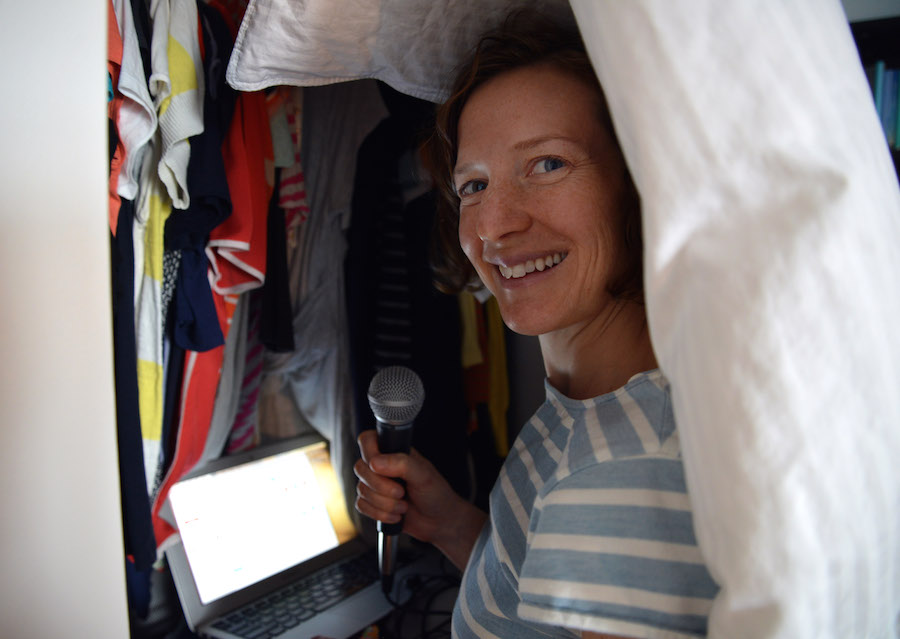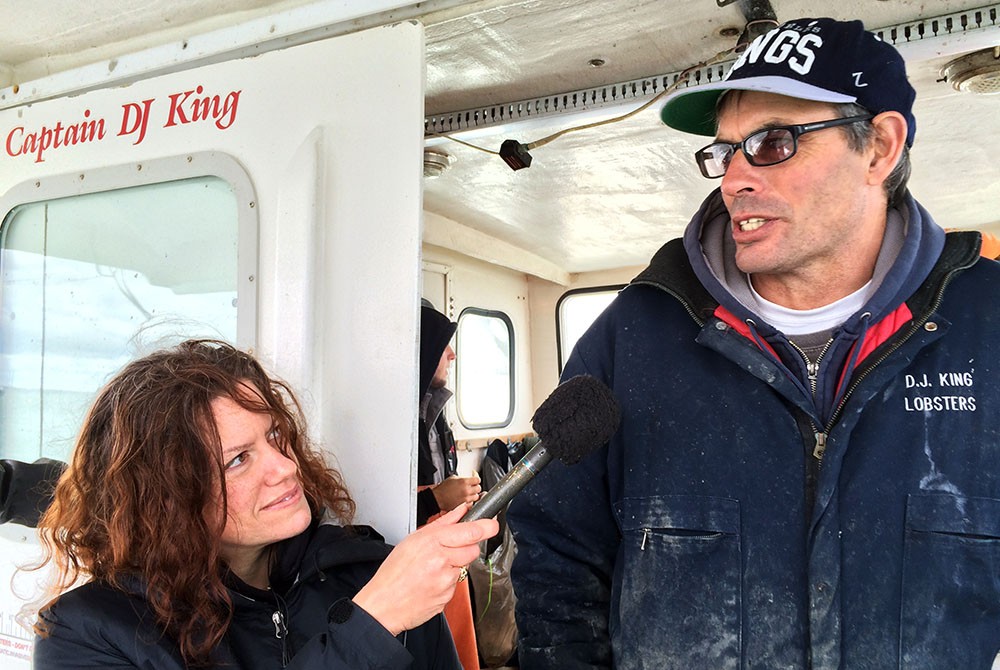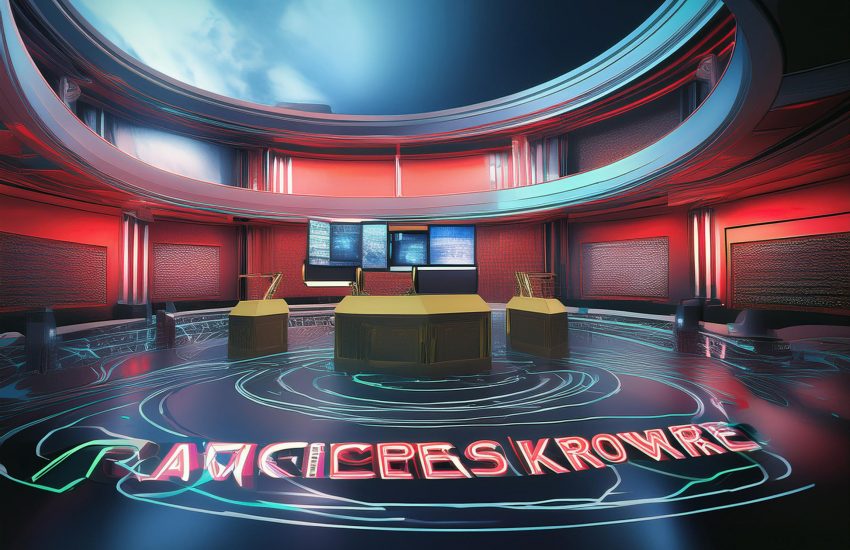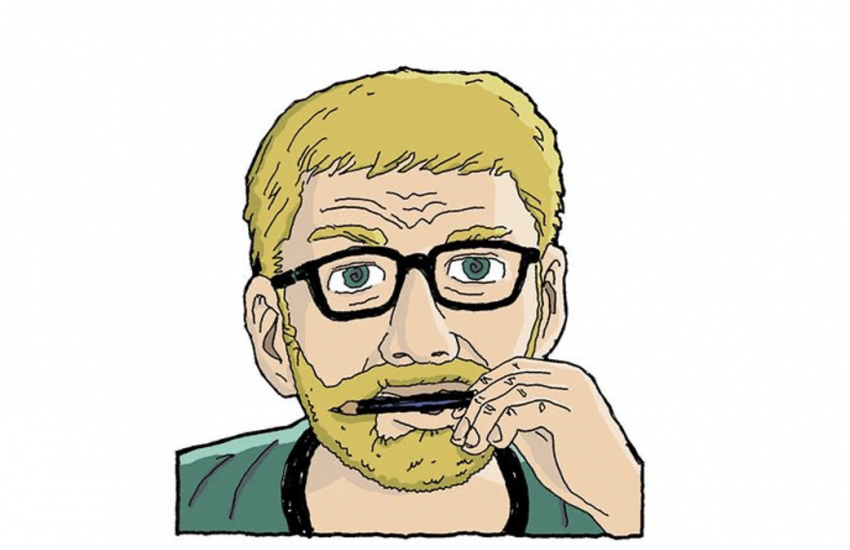Listening in on Gastropod: How two journalists mix food and science for their podcast
Shaken or stirred? Scientifically, which makes for a better cocktail? Is MSG really that bad for you? And what do leaf-crunching caterpillars sound like and how can this help us understand plant self-defense?
Cynthia Graber and Nicola Twilley explore questions like these on Gastropod, a podcast that looks at food and farming-related topics through the lens of science and history. Everything from soup to nuts. Really.
Since launching in September 2014, Gastropod has won several awards and has been featured on a number of “Best of” lists, including Wired’s 2015 selection of best-scripted podcasts. When Graber and Twilley are not reporting and producing Gastropod, they are busy with their full-time freelance careers as science journalists.
How do they do it? Graber and Twilley took us under the hood of Gastropod, talking to Storybench about the importance of getting quality sound, reporting a story with an open mind, and connecting with listeners.
Why do you like podcasting as a medium?
Twilley: I have no background in audio journalism, so I’m really enjoying thinking about how to work and think in audio, and what works and doesn’t work, and how you tell a story differently in this medium. It allows me to make something that I would never be allowed to make within the sort of public radio format, because I wouldn’t have had the experience.
Graber: I just think it offers us so much freedom and autonomy and space for creativity, [as well as] this intimate connection with our listeners. In the beginning Nicky and I knew that for listeners to stick with us episode after episode, it wasn’t just a matter of doing great reporting, or having great sound and great storytelling, but also creating two characters – which are Nicky and Cynthia, as characters. So our listeners connect to us, and they want to hear us, and they want to hang out with us. And podcasts allow for that intimate relationship.

Can you walk through how you make an episode, including what we hear and what we read on your website?
Twilley: Starting at the beginning with idea generation, we both have a ton of things we’re interested in. We also respond to opportunities that come up, like a book coming out or the chance to be in a place. And there’s increasingly listener questions, which are really fun… And arguing about which are the interviews that we have to do versus the ones that… we want to do.
Graber: At that point we decide who we want to interview. Sometimes we’ll go online and try to hear them speak, if they have already. Then we’ll set up an interview, [and if it isn’t in person,] we ask how we can record them. We try to get the best quality sound. We don’t even do cell phone interviews because the sound is really bad. We often tape them on land lines, but we have them tape themselves with their phones. Or we’ll use Skype. Then we transcribe all of the interviews, and then we do what we call ‘cut and keep,’ where we highlight the stuff we like. Then we get on a Google doc and write a script together… And then we get on Skype together and record our parts separately, and then I mix the whole thing.
Twilley: We listen to it, make edits, and then we go through the process of releasing it. That involves drafting a blog post and putting out an email, and uploading it to SoundCloud.
So you have an idea and then you interview people and then you do the script?
Twilley: Yeah we try to keep it focused. Every extra minute of tape has to be transcribed. And it’s another minute you can’t get back. You can’t predetermine the story before you record it, so we don’t. But we do try to at least feel like we have a sense of where this expert is going to fit in our overall episode and what sorts of things we need to get from them.
Graber: Even though we’ve done all this research and we’ve read the books and done all that, there’s still so much that happens organically when you’re talking to people. You don’t necessarily know where things are going to go.
Twilley: With the maple episode, for example, we did not know going in actually that there was going to be quite as much of a boom going on. I mean, we had some sort of a sense of a market demand, and we thought maple water had something to do with it, but we didn’t really know how it was affecting farmers on the ground, the fact that they really are doubling, quadrupling the number of taps they have. And so the boom ended up being our focus much more than it had been before we started reporting the story.
You come out with a new episode every two weeks. Is that how long the turn-around time is from your end?
Twilley: No – we try actually to give ourselves a little more time than that, because some stories take longer. Like our calorie episode, we started working on that story a long time ago, but we were reporting on it in October. And it came out at the end of January. That was an extreme case. I’d say we turn things around in three weeks, hardly ever two.
As freelancers, how much time do you devote to Gastropod versus other work?
Twilley: Theoretically it should be part-time for us. In actual fact what happens is it’s practically full time, and then we do everything else we do. In my case, I’m a contributing writer at The New Yorker, and I’m working on a book, so a whole slew of other things.
Graber: And I podcast for a couple of different scientific journals, I have an article coming out in Wired. It seems like in a few months I have a bunch of other articles on the horizon.
Twilley: And yeah, it’s hard, but you can’t complain when you are doing something that you really love. We made Gastropod because we chose to do this. It’s definitely a lot of work.
What would you say is your biggest challenge working with Gastropod?
Twilley: Our single biggest challenge is getting the word out to all of the people who would be interested in listening. It’s very hard for new listeners to find you. Podcasts are just not as shareable in the same way as stuff online is.
Graber: We think our potential listenership is huge and limitless because everybody eats. We approach food in a way that is interesting and accessible to almost everyone. We don’t think there is a limit for only people who are obsessed with food or only for certain age group or only for certain gender. We have listeners across the scope – so it’s a matter of reaching people.
How you fund-raise for the show?
Twilley: We have advertising, and we also get grants. In particular, from the Burroughs Wellcome Fund. We also get listener donations, which are the thing that makes us very happy. And we’ll sometimes do partnerships.
Graber: We’ve worked with Mosaic on our calorie episode. They funded our travel to do the research we were doing for an episode … and we wrote the article for them and did a podcast episode, and they dropped on the same day.
Elements of your calorie episode made it to other audio outlets – how did you go about that?
Graber: We talked with Rose [Eveleth] about the future of food and nutrition, and that it could be a fun thing for what she had coming up [on her podcast Flash Forward]. And so we started brainstorming about her upcoming episodes, and we were on the show!
Twilley: We also were interviewed by Only Human, and then they aired part of that piece on WNYC’s Morning Edition. So these are more casual than a partnership. It’s just that when topics fit, and you can do that, it’s great! Because they have an audience, you have an audience, and you can sort of cross-pollinate in a fruitful way.
What advice do you have for journalism students wanting to start a podcast?
Graber: My advice is that it is harder than you think it is… It takes time to figure out how to get good sound, and to make what you’re doing sound good, and to learn how to edit well. It’s not at all impossible, absolutely people can do it. It does take an investment of time.
Twilley: A lot of people have a lot of preconceived ideas of what a podcast can or should be. Our podcast has been considered way too long. But actually, it’s what we do and how it works, and depending on your commute, it might be just right! Or how long you like to stand on the treadmill. There’s room for a little bit of making sure that you just make the thing that is right for what you are trying to do, rather than trying to follow some rule book.
Graber: I agree. There are a lot of people that have expert opinions on podcasting, and I would say, don’t listen to all of the experts. There are a lot of people out there saying, ‘This is what it’s supposed to sound like,’ or ‘This is what a good podcast is,’ and I think you just need to find the people who like your podcast.
Gastropod’s gear:
- Mixing: Hindenburg
For further reading and learning about audio, Gastropod recommends:
- Workshops with Duke’s Center for Documentary Studies
- “Finding the Tribe” – Nieman Storyboard





